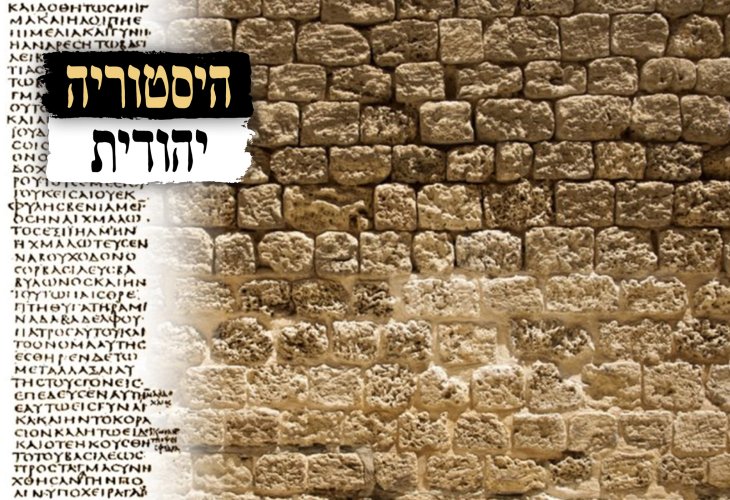The Story of the Septuagint: Translating the Torah into Greek
Discover how King Ptolemy gathered seventy Jewish elders in Alexandria to translate a sacred text. Eager for precision, he isolated each elder to prevent shared versions.
 (Photo: shutterstock \ Illustration: Hidabrut)
(Photo: shutterstock \ Illustration: Hidabrut)On the 8th of Tevet, over two thousand three hundred years ago, King Ptolemy Philadelphus left his palace in Alexandria, as he did each week, heading to the great library.
The great library of Alexandria was established by his father, King Ptolemy I, with the goal of collecting all the world's literature. The library contained close to a million books (for context, Israel's National Library boasts five million), and the Ptolemy family wanted it to house every book in existence.
Ptolemy II approached Demetrius of Phalerum, the chief librarian, and asked, "Are there any books that haven't been copied for my library? I want no book to exist anywhere in the world without having a copy here."
Demetrius replied, "Your Majesty, I've heard that the Jews possess a book of laws written by their leader Moses during their time in the desert, but we don't have any scribes who can read their unusual language. Every Egyptian, Babylonian, or Greek book can be found here, as we have scribes aplenty, but no one who reads the language of the Jews."
Ptolemy answered, "I'm interested in this book. I'll pay full price to Jewish scholars who can write in Greek to have their book translated."
Thus, Ptolemy gathered seventy elders from the Jewish community in Alexandria, which was a large Jewish hub, for the task of translation. He was determined to understand exactly what was written in their book, so he placed each elder in a separate room to prevent them from aligning their versions.
Indeed, the elders did not alter the text of the Torah, except where absolutely necessary, and a miracle occurred in that they all were guided to the same conclusions. One notable instance is the mention of the hare in the Torah. Why the hare? Because the full name of King Ptolemy was "Ptolemy Philadelphus," and in Greek, "hare" equates to "Philadelphus," so when the curious king opened the Jews' book and found "Philadelphus you should not eat, it is unclean for you," he would have been very insulted... Thus, they translated it as "short-legged one," meaning "short-footed."
The translation was completed on the 20th of Tevet, but the Jewish sages were far from joyful about the event. On the contrary, they declared a fast, stating that "darkness had descended upon the world." Why? Because the Torah needs to be read along with Jewish Oral Torah and tradition to be understood, whereas the Greek Torah was accessible to anyone lacking knowledge of tradition. This could lead to misinterpretations, as was famously done by Christians and later Muslims.
Today, the Septuagint is still around, but it is not the same translation written by the seventy elders. Instead, it consists of copies of copies, making it inaccurate, with many strange errors.

